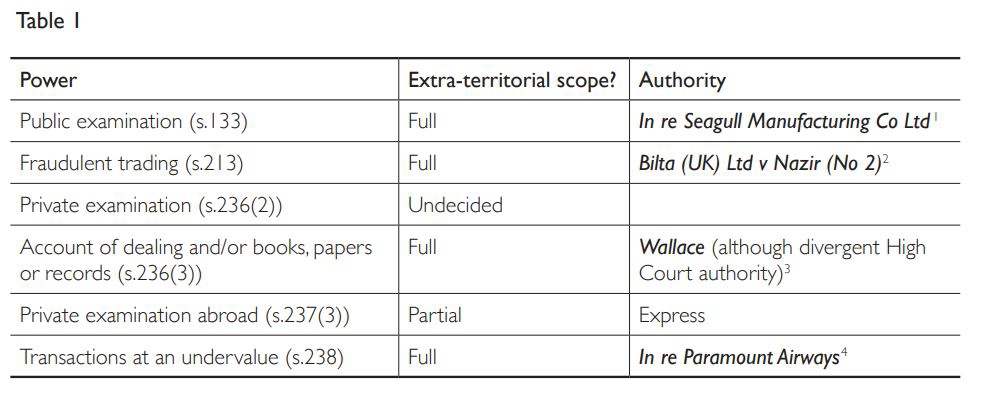OVERVIEW
This article was first published in International Corporate Rescue by Chase Cambria
This article was first published in International Corporate Rescue.

The recent English decision in the Australian liquidation, New Cap Reinsurance Corpn Ltd (in liquidation) and another v Grant and others (available here), has further opened up the possibility for New Zealand insolvency proceedings to be recognised and enforced in the United Kingdom.
MCGRATH AND ANOTHER v RIDDELL, House of Lords, 9 April 2008
The liquidators of the HIH group of Australian insurance companies appealed against the decisions of the High Court and the Court of Appeal that certain assets of the HIH group, mostly reinsurance claims on policies taken out in the London market, should not be remitted to Australia. The courts instead ordered that the assets should remain in England and be distributed to creditors in accordance with English insolvency laws.
The Facts
The case concerned an application made by the Liquidators of a BVI incorporated company, Peak Hotels and Resorts Limited ("Peak"). The application was intended to determine the effectiveness of a charge granted by Peak to Candey Limited, Peak's former solicitor.
Peak was the holding company of a joint venture vehicle that became the subject of lengthy international litigation proceedings following the breakdown of relations between the joint venture partners and shareholders. Candey acted for peak in the litigation.
This month we review the court's view on open ended suspension of discharge from bankruptcy and the difficulty of 'substituting' a defendant in proceedings where the relevant limitation period has expired:
Suspension of discharge from bankruptcy should not be open ended
The High Court has held that only in the most serious cases of non-co-operation should a discharge from bankruptcy be suspended otherwise than on a specified period or condition basis.
Foreword Head of Real Estate Disputes Mathew Ditchburn considers what 2020 may have "in store". Five minutes with: Hebe Morgan We chat to real estate associate Hebe Morgan who is currently on secondment at M&G Real Estate.
CVA Special: Mathew Ditchburn reports
Introduction
On 13 September 2018, the UK Government published a guidance notice (Guidance) on handling civil disputes, including cross-border insolvencies, in the event that the UK exits the EU without having first agreed a framework for ongoing civil judicial cooperation, and from which time and date (11 pm on 29 March 2019) the UK will not benefit from the EU rules to replace the current arrangements.
